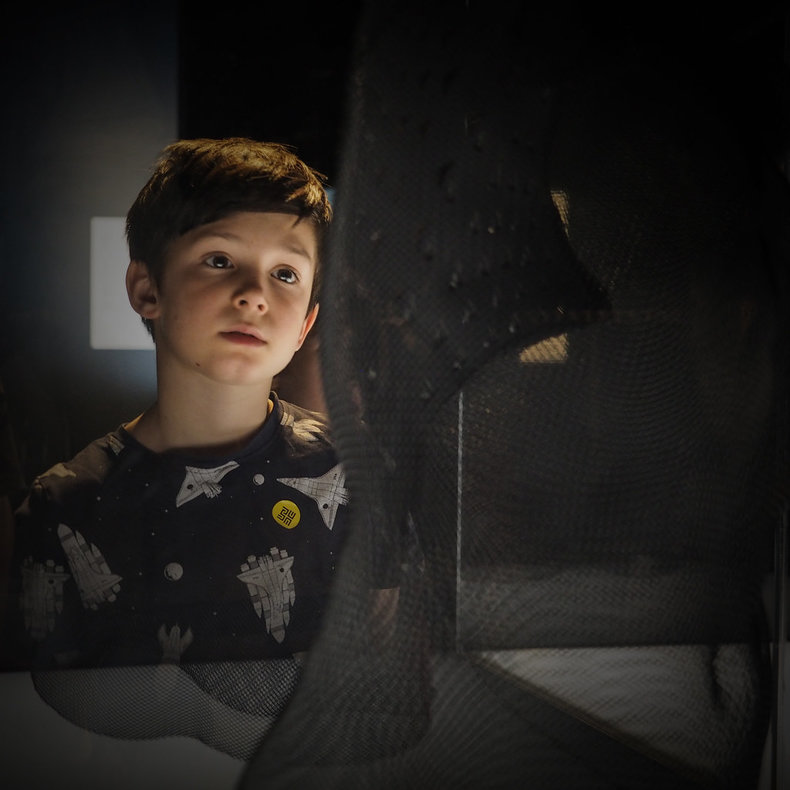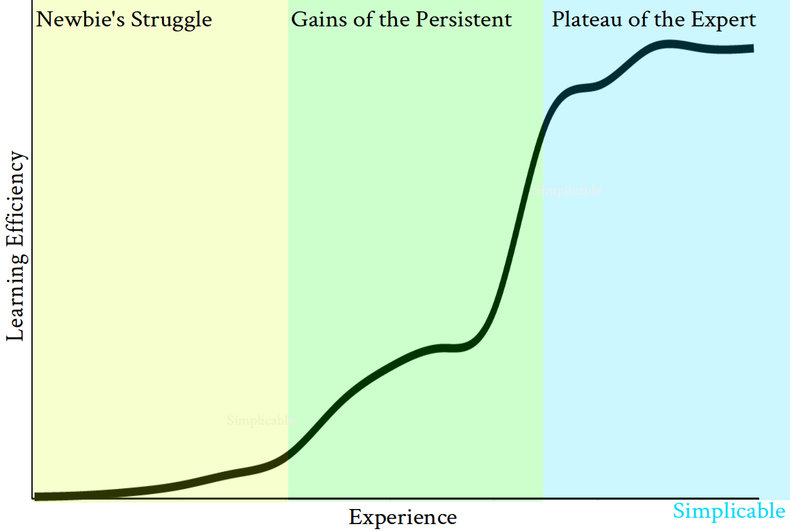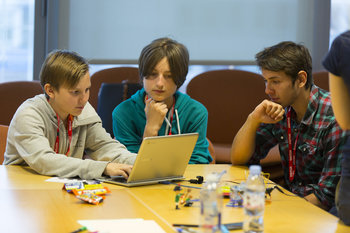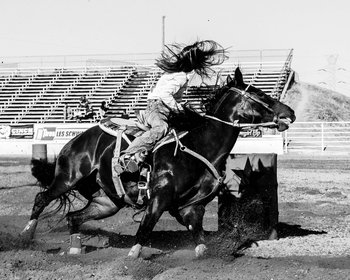

| Overview: Learning Curve | ||
Area | Learning | |
Type | Mathematical model of learning efficiency | |
Definition | A tendency for learning efficiency to improve with the hours you invest learning a subject until you reach a state of peak efficiency. | |
Levels | Newbie's StruggleA tendency for beginners to learn slowly. For example, an individual learning a second language who has trouble remembering words and conceptualizing grammar rules.Gains of the PersistentLearning efficiency improves with invested effort. An individual learning a second language may be able to initially remember a few new words a day but may eventually be able to remember dozens of new words a day.Plateau of the ExpertExperts in a subject or domain learn quickly but are unable to improve their learning efficiency past a particular point because it always takes some basic amount of effort to learn. For example, a native speaker of a language still requires some time to learn new vocabulary. | |
Shape of the Curve | The shape of a learning curve is different for every subject and topic. Generally speaking, the curve starts flat, eventually starts to climb rapidly and then flattens out as pictured above. This can be described as an s-curve. |
Myths & Misconceptions | There is a common saying that a topic that is difficult to learn has a "steep learning curve." This is misleading as a steep learning curve means that you rapidly learn faster and faster such that a topic is easy to learn. A topic with a flat learning curve is more difficult to learn.It is a myth that there is a single shape of learning curve. In fact, every subject and topic has a different learning curve as does every individual learner.Another common misconception is that the plateau at the top of the learning curve means that you stop learning or that you are overlearning. The plateau at the top of the curve simply means that experienced individuals learn quickly not that they stop learning or are learning too much.In some cases, the learning curve is depicted as a hyperbolic curve that shoots up forever. This seems unlikely as it would mean that you suddenly become infinitely efficient. This could be compared to the concept of enlightenment whereby you suddenly understand the entire universe at a point in time. |
Applications | The primary application of the learning curve is to set expectations that learning a new subject is initially very difficult but that at some point you will begin to learn very quickly if you put in enough time and effort. |
Related Concepts |






























